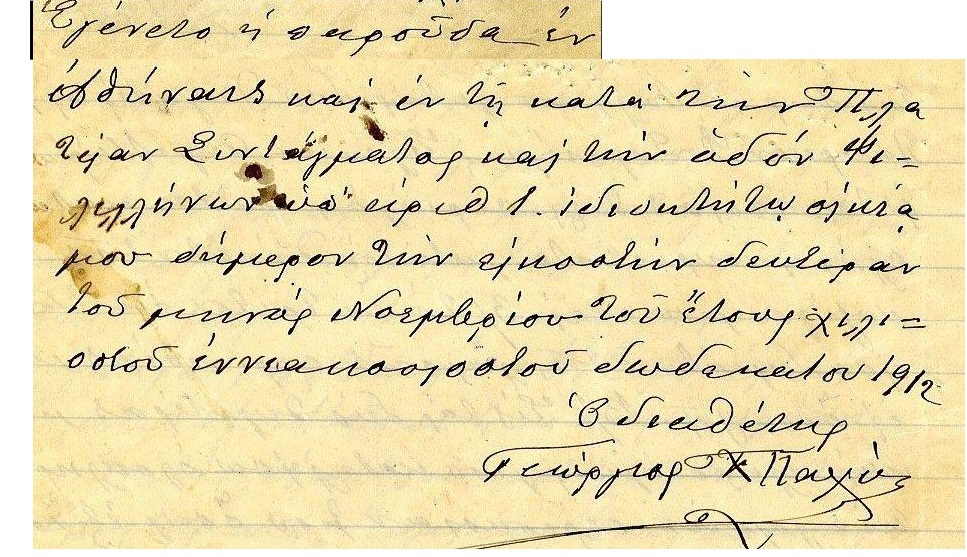
Spiliotis Nikolaos
Department of Reading Room and Archival Research
Central Service of the General Archives of Greece
Testament of Georgios Chr. Pahis: Digging up people and places sunk in time; 19th century in Athens.
From the archive of testaments of the Athens First Instance Court, number 378/1913. Along the left margin of the pages of the autograph will, the full signature of the testator extends vertically, running upwards. The will is written in his own hand on 22 November 1912. He dies a few months later. The will is acknowledged as valid on the strength of three witnesses’ testimony in the records of session number 370 of the Athens First Instance Court on 8 July 1913.
The people who emerge as well as their descendants play an important role in the economy, politics and culture of Athens in the latter half of the 19th century and in a large part of the 20th century.
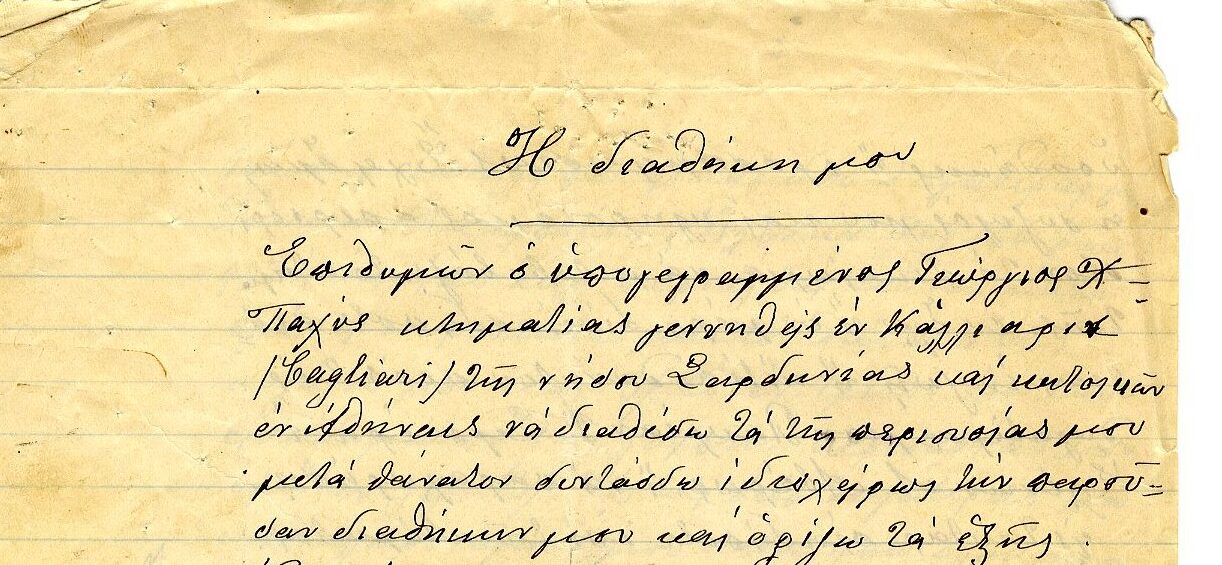
The undersigned Georgios Chr. Pahis, landowner born in Cagliari in the island of Sardinia and resident in Athens desiring to bequeath my property after my death I draw up my present will in my own hand and stipulate the following[ […]1
1 The transcription of the text retains the spelling of the author. When he writes the letter l above the line he regards it as capital, e.g. lauria, Kato liosia.
George Chr. Pahis:
He was born in the town of Cagliari, where his father – Christodoulos – had taken refuge to avoid arrest by Ali Pasha. He reads Law and studies the history of ancient Greece. He conceives the idea of exploiting the scoria (slag) as well as the ore in Lavrion. (However, the Greek Government opts for Serpieri’s proposal, regarding it as more profitable.) He went into politics and was elected as a Member of the Parliament in the constituency of Arta.
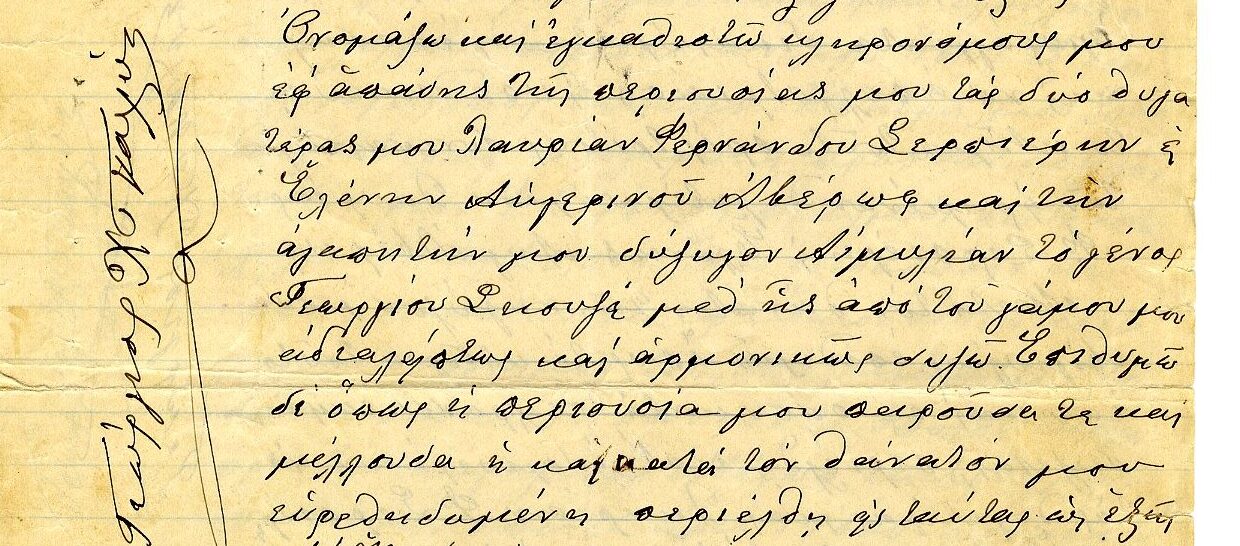
[…] I name and appoint heirs to my entire property my two daughters, Lauria wife of Fernando Serpieri[…]
Lavria Pahis, wife of Fernando Serpieri:
Her godfather was Giovanni Serpieri, who gave her the name Lavria because of the success of his business at Lavrion. When she grew older, she married Giovanni’s son Fernando.
Giovanni Baptista Serpieri:
Son of Enrico Serpieri (who had revolutionary activity as a collaborator of Giuseppe Garibaldi), famous mineralogist and founder of many companies. In 1864, he founds the company Roux-Serpieri-Fressynet in order to exploit the ore of argentiferous lead at Lavrion.
[…] and Eleni wife of Avgerinos Averoff[…]
Eleni Pahis, Avgerinos Averoff’s wife:
Among her children was Lavria Averoff, wife of Aristeides Protopapadakis2, politician, son of the prime-minister Petros Protopapadakis, who was convicted to death in the Trial of the Six.
2 G.A.K. – C. S. A, archive of Testaments of the First Instance Court of Athens-testament 2911/1949, testator Eleni, wife of Avgerinos Averoff, daughter of Georgios Pahis.
Avgerinos M. Averoff:
Landowner at Kerinthos and MP of Euboea. Brother of the great benefactor Georgios Averoff3. The prime-minister Alexandros Papagos comes on the distaff side of the family of Avgerinos.
3 GAK – C.S.A., Private Collections K109ζ,δ_4.
[…] and my dear wife Aimilia, daughter of Georgios Skouzes, with whom since our marriage I live uninterruptedly and harmoniously.
Aimilia, daughter of Georgios Skouzes:
Daughter of the banker Georgios Skouzes4 and Eleni Kapsalis, descended from the Messolonghi hero Christos Kapsalis. She was in the narrower circle of the Duchess of Placentia and for a time her secretary.
Georgios Skouzes:
Georgios Skouzes (1811-1884), son of Panagis, was initially involved with commerce at Trieste, but later took part in the foundation of the National Bank of Greece, and participated in the foundation of the Ionic-Industrial Bank and in the Company of Athens-Piraeus Railway as well.
4 GAK – C.S. A., Private Collections K109ζ
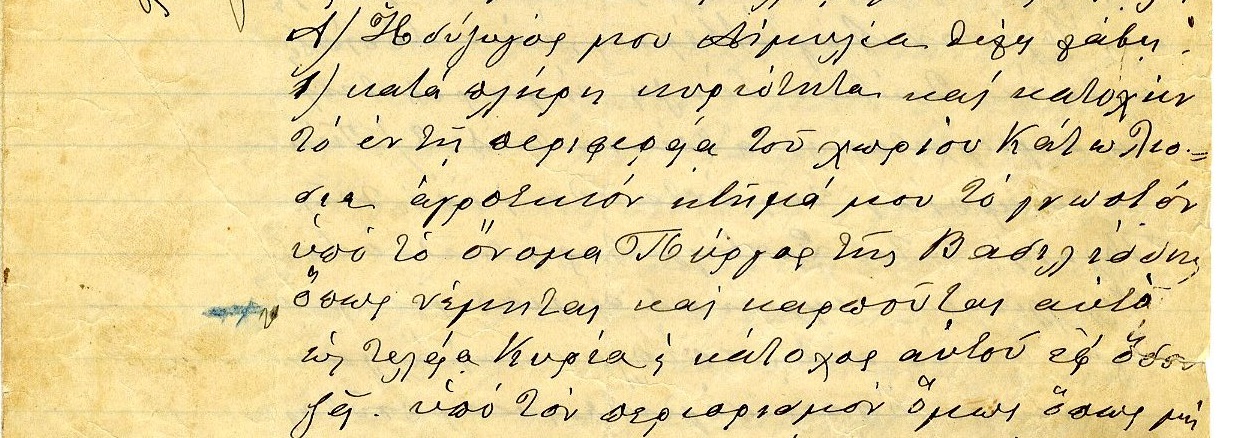
- My wife Aimilia shall receive:
- By full ownership and occupancy my farm in the region of the village Kato Liosia, known by the name Tower of the Queen, in order to hold it in her possession and usufruct as its complete Proprietress and occupant for life[…]
Tower of the Queen or Heptalophos5:
It was created by Amalia, first Queen of Modern Greece. It was a model farm intended to contribute to the agricultural, gardening and livestock growth of the country’s economy. After Otto’s dethronement, the farm was sold to Simon Sinas and on 09.12.1878 the contract of its final purchase by Georgios Pahis was drafted.
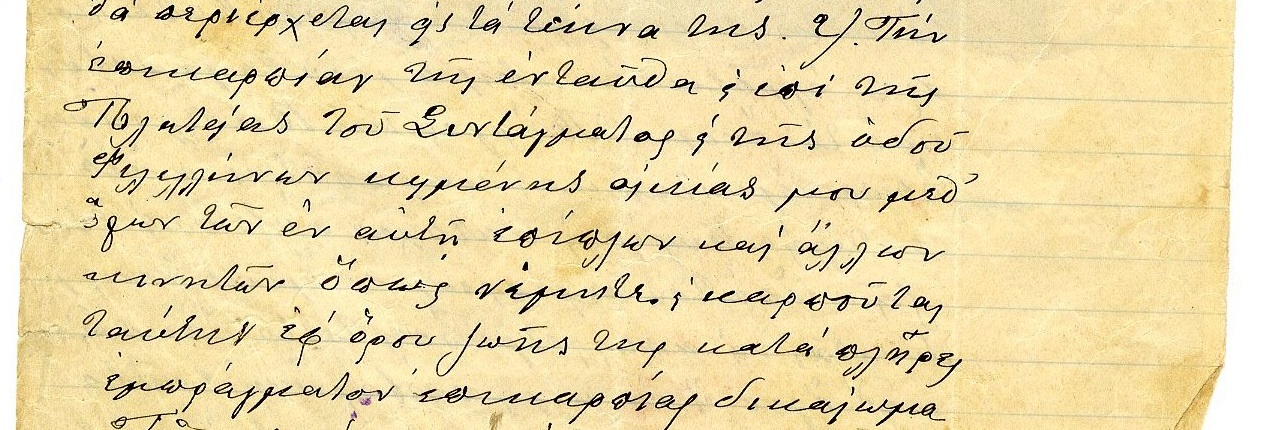
- The usufruct of my residence here on Syntagma Square and Philhellenon Street with all its furniture and other chattels, in order that she be in its possession and enjoy it for the duration of her life according to a full title of usufruct. Residence of Georgios Chr. Pahis
It was the mansion of the Spetziotis Nikolaos Anargyros. It had a big courtyard and a stable and its erection is placed between 1851 and 1853. Later, when it became the residence of Georgios Pahis, it housed one of the most important literary salons of the time. Its “soul” was his wife Aimilia. It was demolished in 1959.

It is worth noting how Georgios Chr. Pahis tries to be fair to his daughters, giving them equal share of his property, in order to safeguard their relationship in the future.
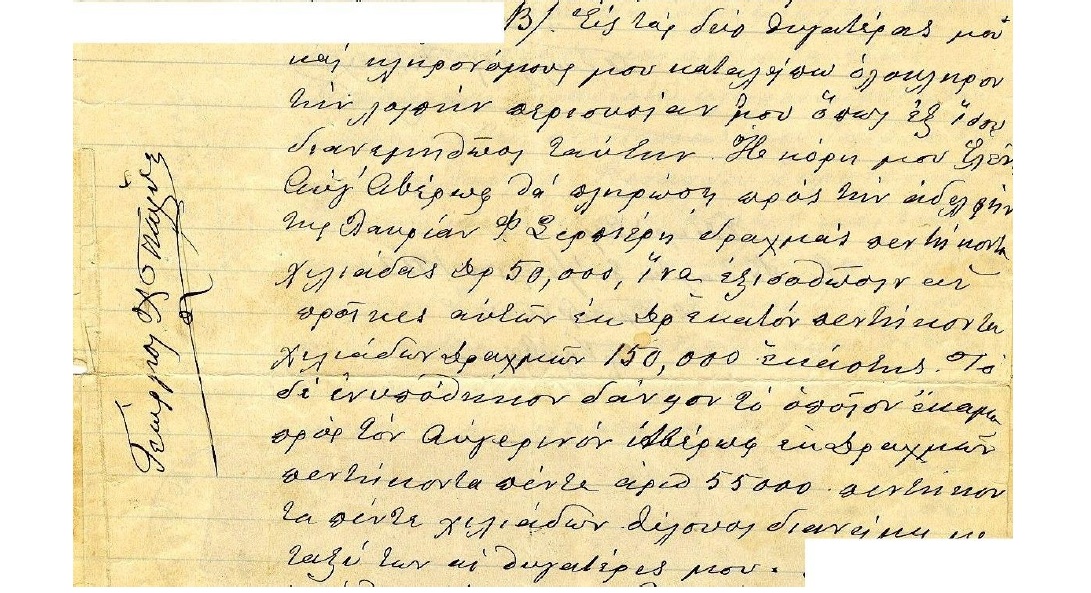
- To my two daughters and heirs I bequeath the entirety of the rest of my property, in order that they take equal share of it. My daughter Eleni Aug. Averoff will pay to her sister Lauria F. Serpieri fifty thousand drachmas 50,000, so that their dowries be equalised to a hundred and fifty thousand drachmas 150,000 each. As for the mortgage loan which I made to Aygerinos Averoff of fifty five drachmas numb. 55,000, my daughters shall divide it equally between them.
Notable is the desire of Georgios Chr. Pahis to protect his wife Aimilia.
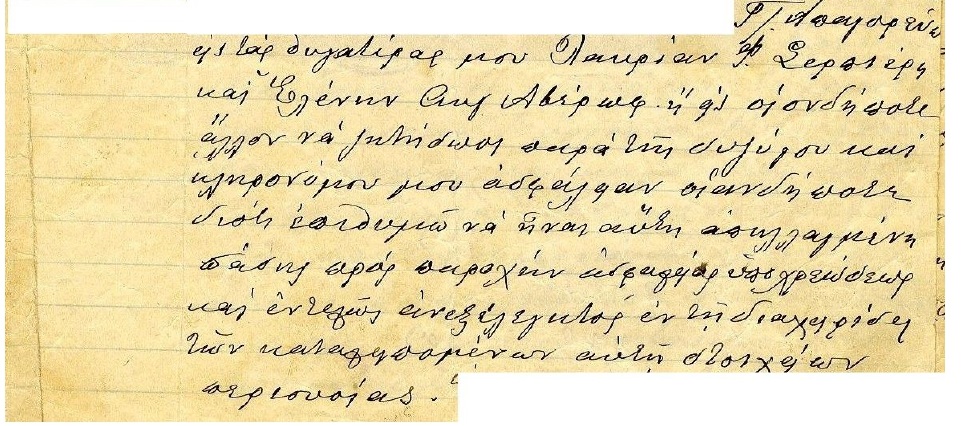
[…] I forbid my daughters […] or anyone else to ask of my wife any kind of pledge, for I wish that she be spared all obligation intended to provide a pledge and be completely unchecked in the management of the assets left to her.
Nevertheless, wishing to retain an equilibrium in the relationship between his wife and their daughters, but also to protect them in the future, he restricts Aimilia:
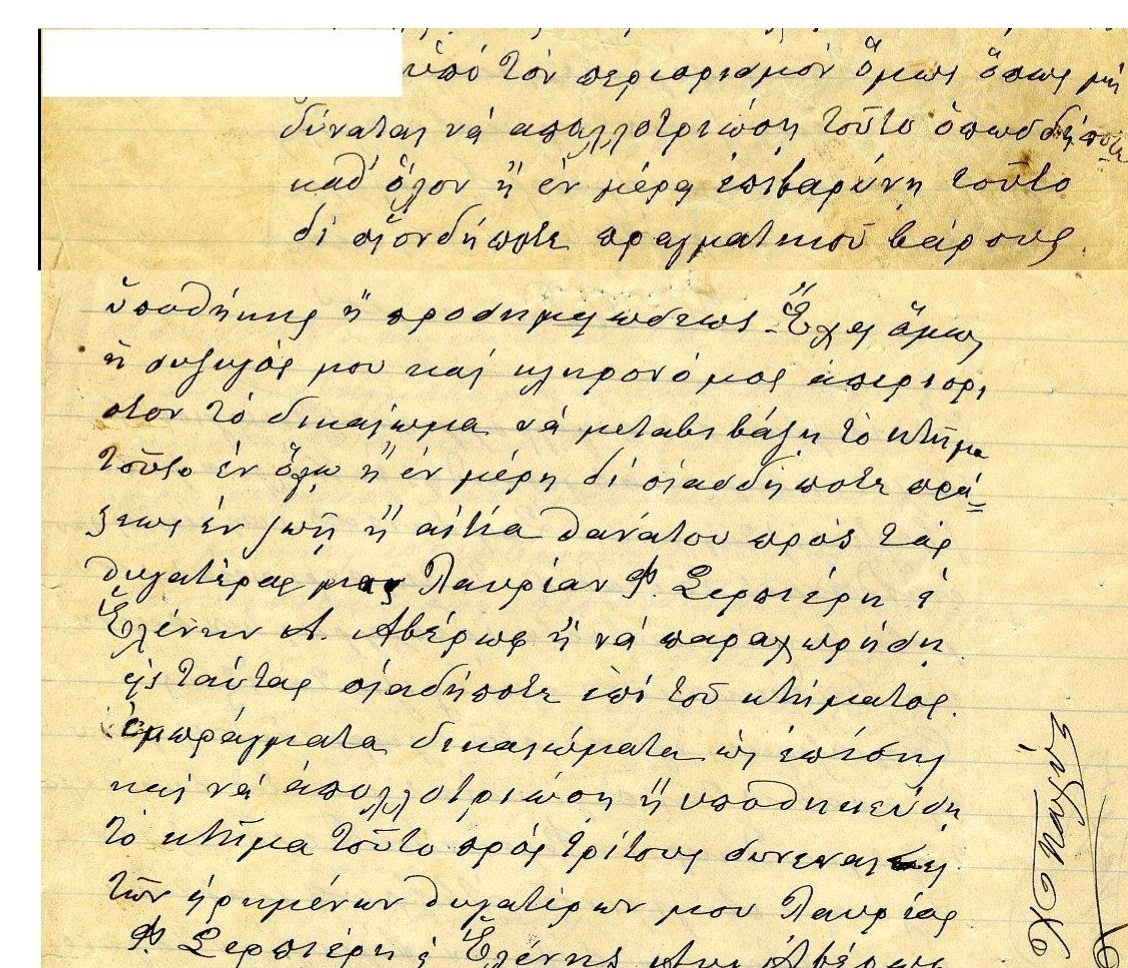
[…] but with the restriction that she shall not be able to expropriate it (he alludes to the farm) in any way in whole or in part burden it with any kind of real incumbrance, mortgage or mortgage prenotation. But my wife and heir has the unlimited right to transfer in whole or in part by any kind of instrument in life or because of death to my daughters […] or to surrender to them all manner of title on the farm, as also to expropriate or mortgage the farm to third parties by consent of my said daughters […]

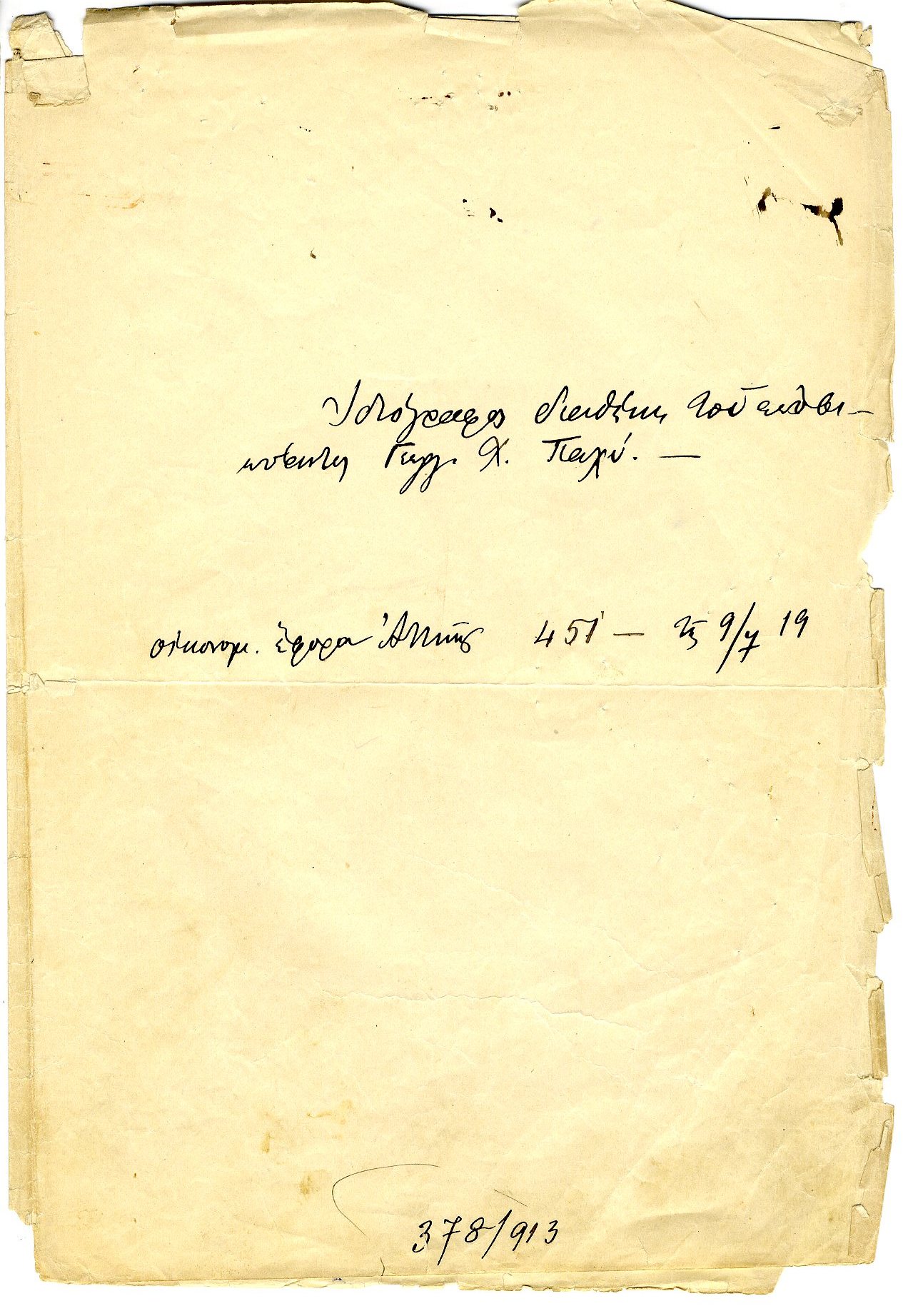
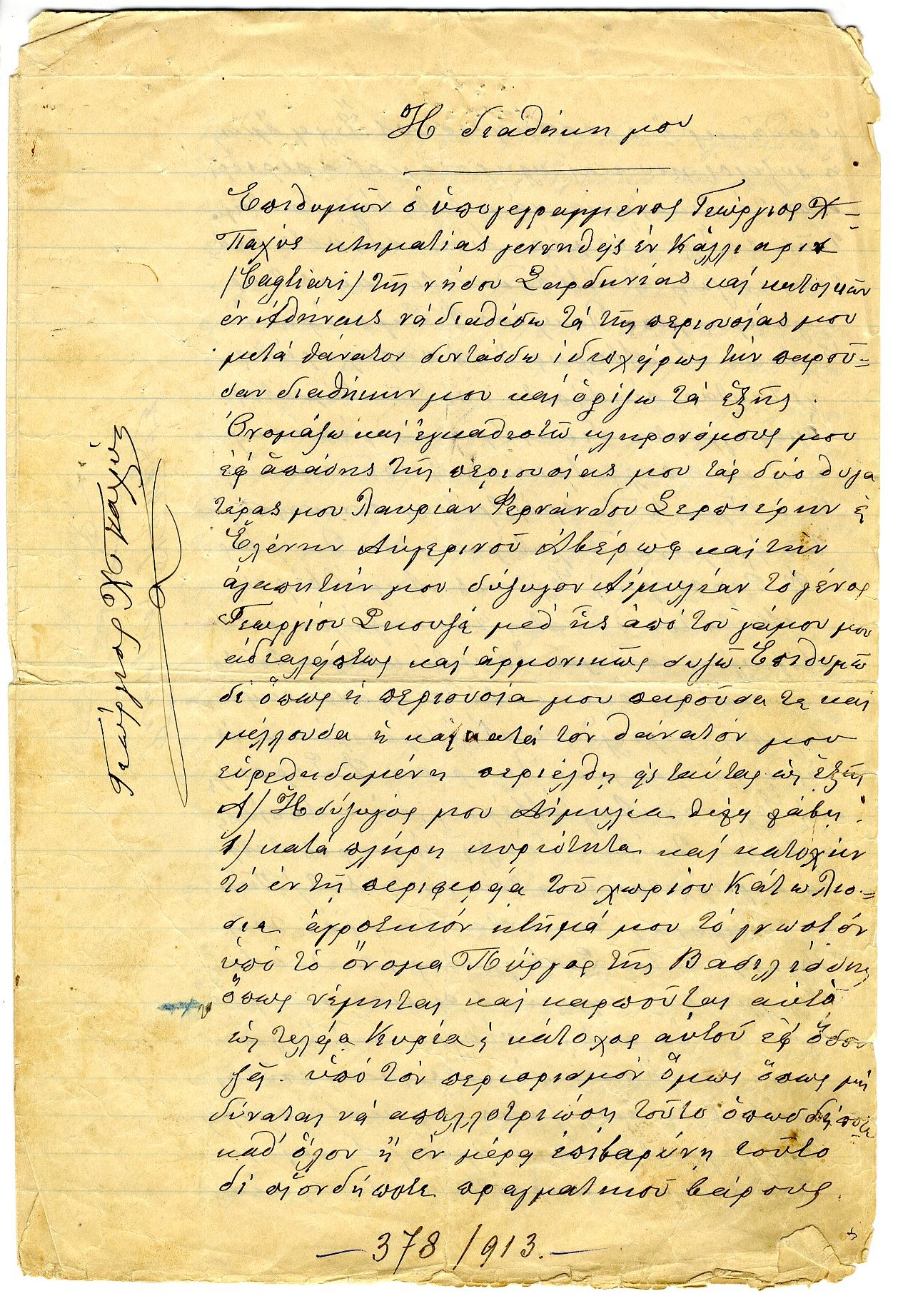
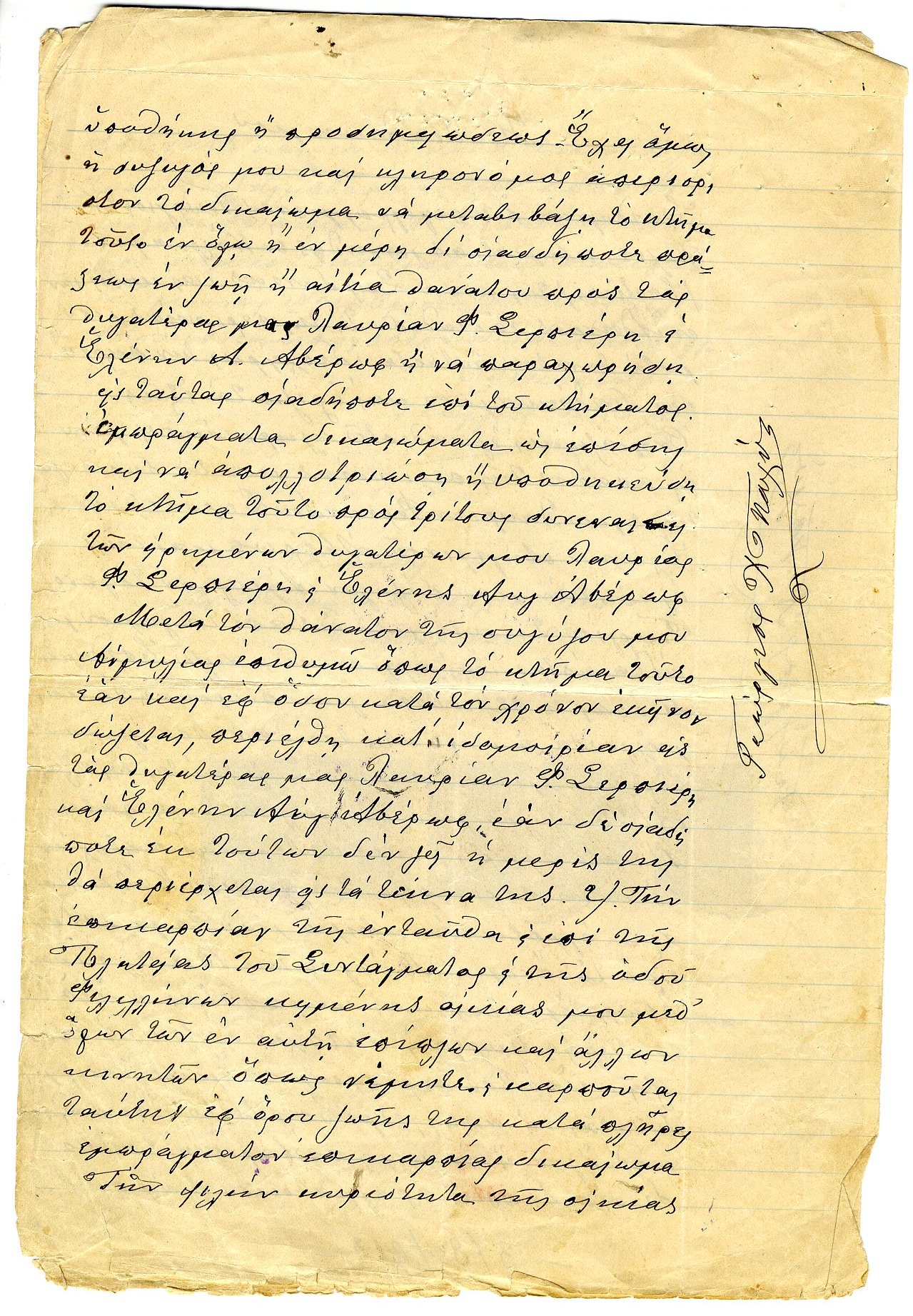
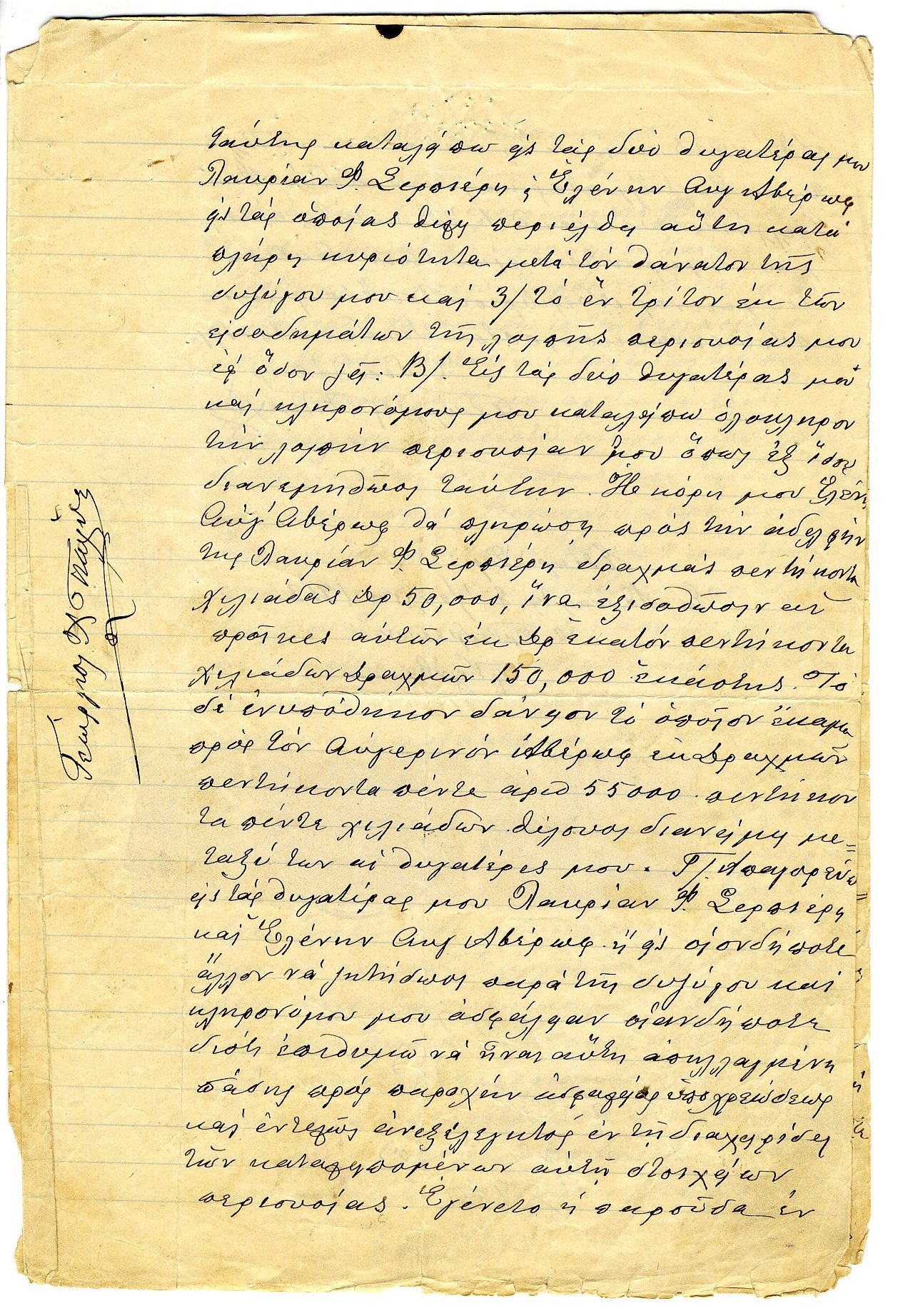
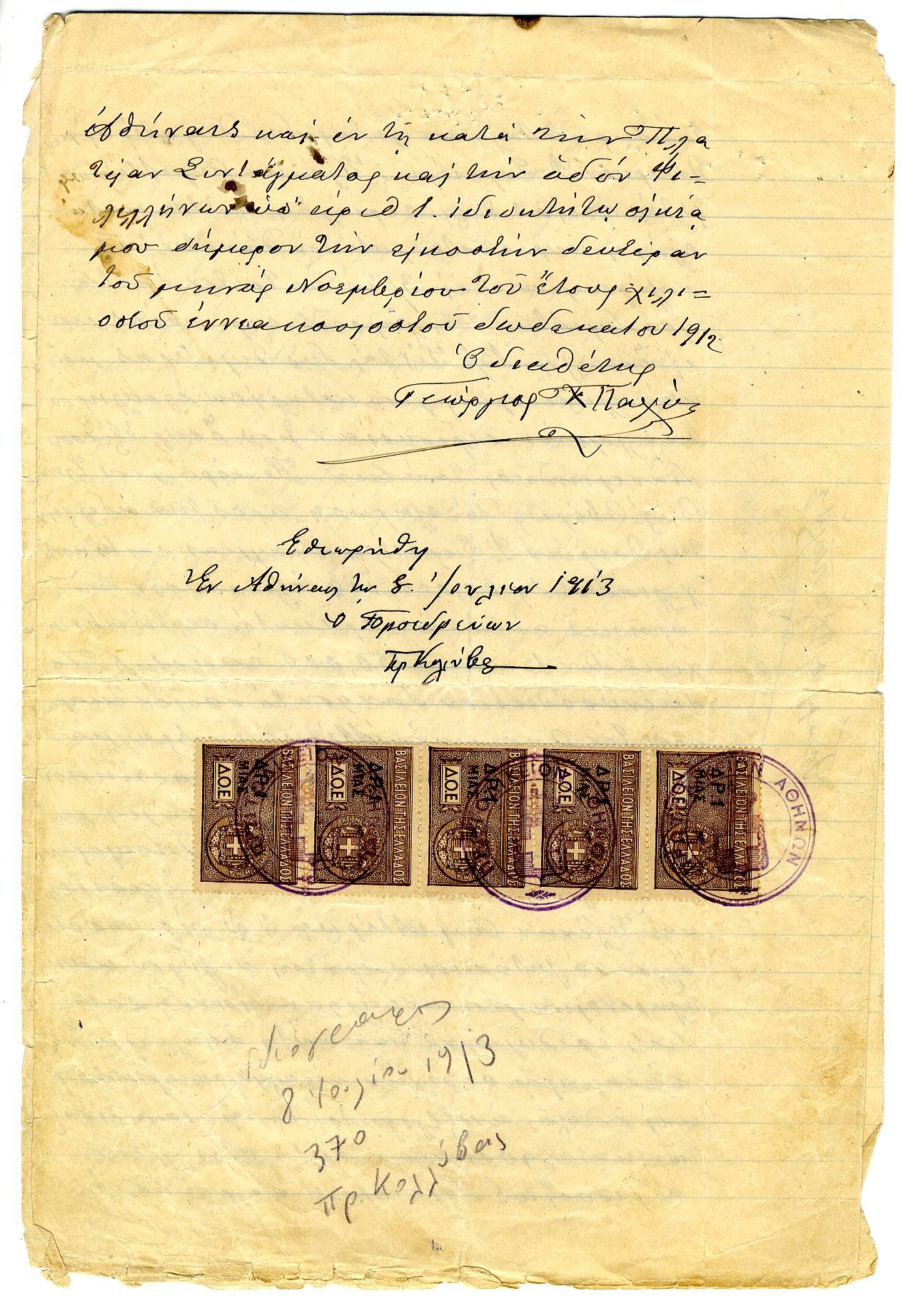
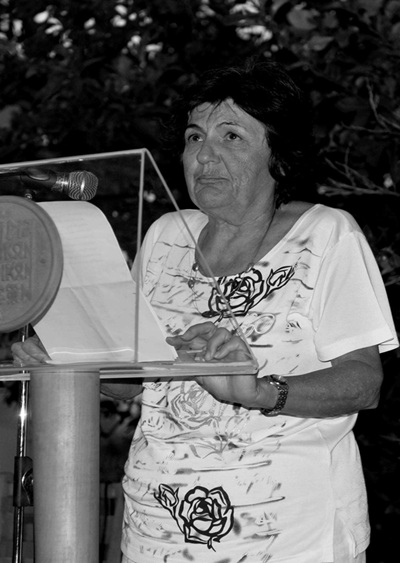
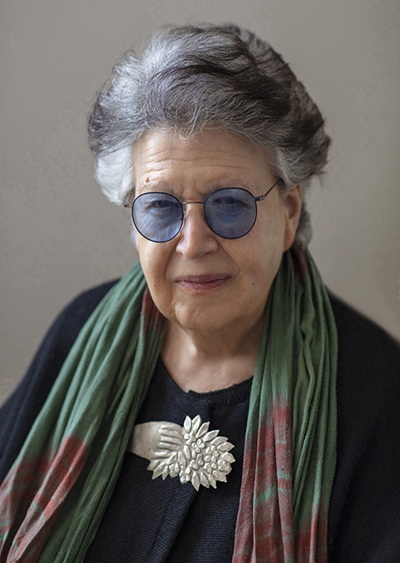
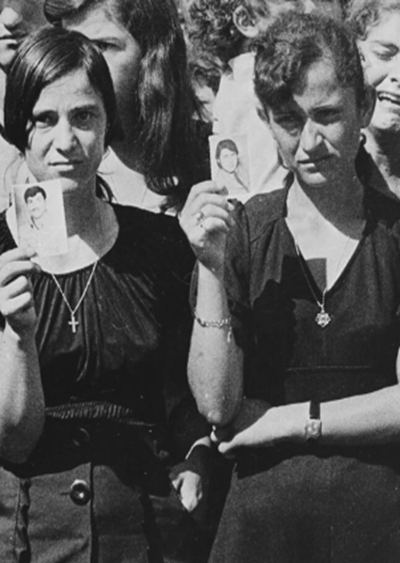
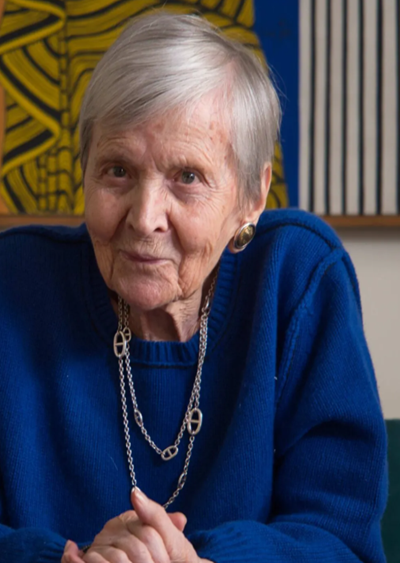


Leave A Comment